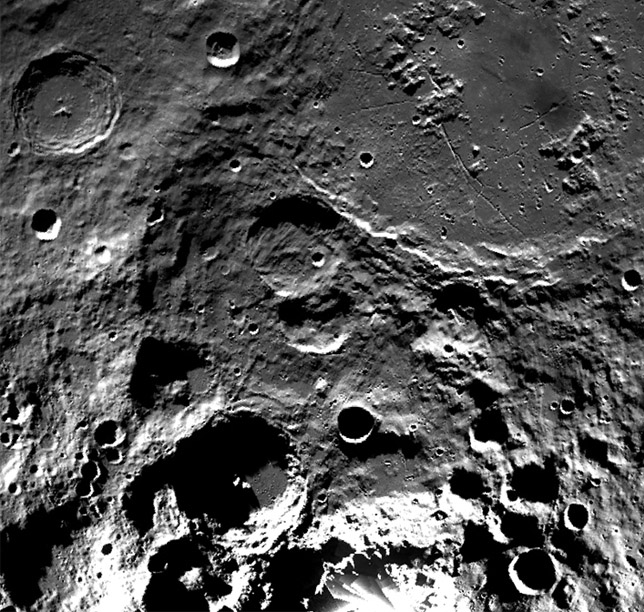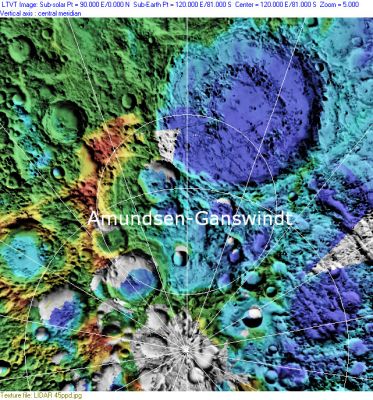Difference between revisions of "Amundsen-Ganswindt Basin"
| Line 2: | Line 2: | ||
=Amundsen-Ganswindt Basin= | =Amundsen-Ganswindt Basin= | ||
''(unofficial name)''<br /> <div id="toc"> | ''(unofficial name)''<br /> <div id="toc"> | ||
| − | + | ||
| − | |||
{| class="wiki_table" | {| class="wiki_table" | ||
| | | | ||
| Line 43: | Line 42: | ||
<br /> <br /> | <br /> <br /> | ||
---- | ---- | ||
| − | + | </div> | |
Revision as of 16:12, 15 April 2018
Contents
Amundsen-Ganswindt Basin
(unofficial name)|
Lat: 81°S, Long: 120°E, Main ring diam: 335 km, Depth: km, Rukl: Libration Zone V (HALE) |
Clementine LIDAR data: altitude-coded shaded relief map. The large ring overlaying Amundsen-Ganswindt on the northeast is the Schrödinger impact basin.
Images
LPOD Photo Gallery Lunar Orbiter Images
Maps
(LAC zone 144A2) USGS Digital Atlas PDF
Basin Classification
(description of terms and most numeric basin data from Wood, C.A. (2004) Impact Basin Database)
| Certainty of Existence |
USGS Age |
Wilhelms Age Group |
Ring Diameters |
Mare Thickness |
Mascon |
| Probable |
Pre-Nectarian |
7 |
175, 335 km |
Description
Additional Information
- Discovered by Baldwin (1969)
Nomenclature
Basins filled with maria are named for the mare, and basins that were previously recognized as craters still bear the crater name. Basins located between craters have the names of the two opposite craters with a hyphen in between, in this case Amundsen and Ganswindt.
LPOD Articles
Bibliography

